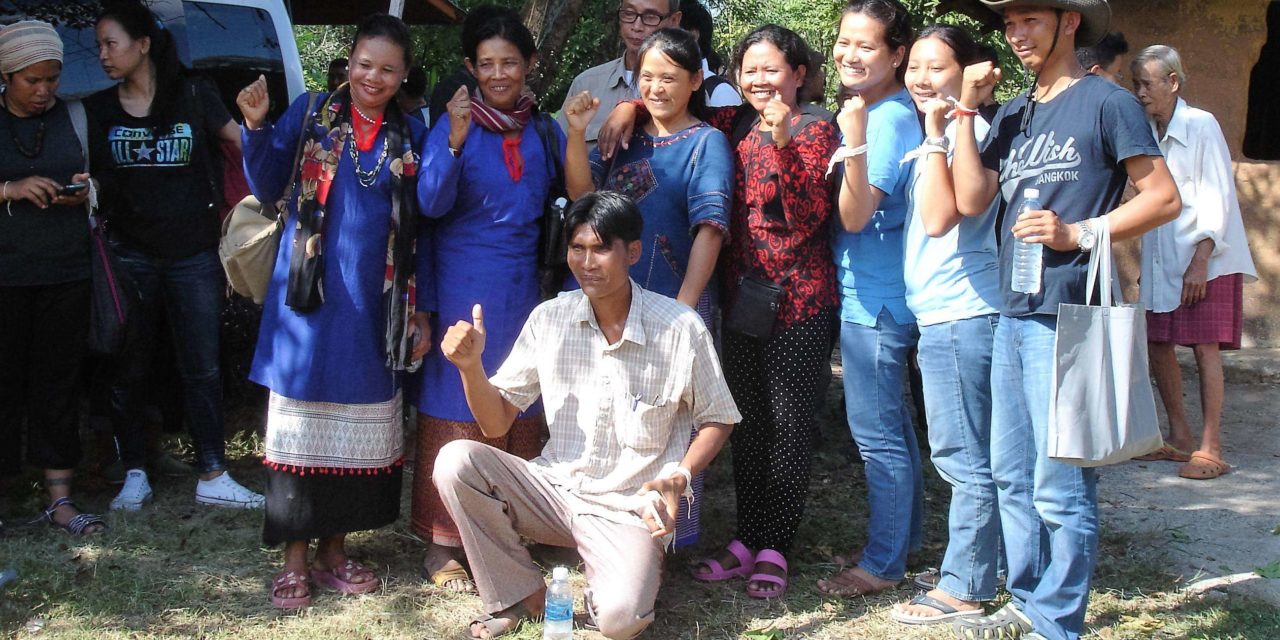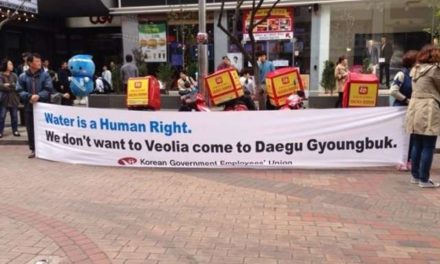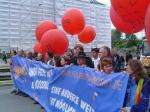From 21-25 November 2016, about 50 people, involved in struggles to defend the territories, forests and livelihoods of forest-dependent communities, came together in Thailand for a field visit to the Northeast of the country, followed by a 3-days meeting in Bangkok. Besides a delegation from Thailand, other participants came from Myanmar, Cambodia, Vietnam, the Philippines, Indonesia, Malaysia and India.
Participants were peasants and indigenous community activists, as well as members of supporting groups, like local organizations, networks and national NGOs. Participants included women, men and a significant number of youth. The meeting was organized by Focus on the Global South and Project SEVANA South East Asia, both based in Thailand, as well as the School of Democratic Economics (Indonesia), The Corner House (UK) and the World Rainforest Movement (International). The meeting was made possible through the efforts of the participants, and additional support from the Land Core Group from Myanmar, Trocaire in Myanmar, AJWS, Focus on the Global South, OLIN Foundation and SSNC.
The aims of the gathering, which focused on the central question of ´What´s happening to our forests? ´, included promoting exchange and dialogue on old and new threats and challenges faced by communities in the different countries. Despite the diversity of languages and cultures of the participants, they became aware that they have many values and concerns in common, for example the importance of the forest for their livelihoods, as well as the threats and challenges they face in defending their territories and forests from land grabbing and deforestation. Participants discussed and got a better understanding of new terms that are being used to describe official ‘solutions’ to environmental crises, such as ´green economy´, ´green development´ and ´green growth platforms´. Such ‘solutions’ are being put forward by governments and companies in alliance with big conservationist groups as ways of both saving forests and delivering benefits to people. But ecological destruction and land grabbing is continuing and even increasing.
Before our meeting, we learned, during a two-day visit to Phetchaboon and Chayaphum provinces in Northeastern Thailand, about the situation of two communities that have been struggling to secure access to their lands and forests against different state forest institutions that plan to evict them from their territories. Community members in one village are being fined for contributing to climate change for practicing small-scale agriculture in the forest. While big polluters continue polluting, these communities, who have never destroyed their environment, are being blamed for a problem for which they do not bear the responsibility. In another village, people are accused of encroaching on a national park, while in reality they are only reoccupying the land and forests where they used to live. However, this land was taken from them by force by the state for a so-called reforestation project with eucalyptus and teak trees. But these monoculture plantations, although, not being real forests, have rendered much of the local people´s agricultural practices unviable and dried up soils, have not ´dried up´ the peoples´ spirit of struggle. Inspired by their traditions, they have reoccupied and have fought for the last eight years for their lands and their food sovereignty, and have gradually recovered the ecology of their area, showing what it means to live with the forest without destroying it. We also learned about the importance of the unity of the community and inclusion of all community members, youth and elderly, women and men, for such a struggle to be successful.
We learned that under the new ‘green’ trends, the same destructive projects are now labeled as ´green´ with different names, ranging from ´green growth´ to ´green economy´, from ‘sustainable dams’ to ´clean coal´. Parts of the forests are being put under REDD+, supposedly to protect them, but restricting communities´ access to and control over them. All of this means more environmental and social destruction. Infrastructure and economic corridors are being planned on a larger scale than ever before, and now also include ‘biodiversity corridors’ to make such plans look ´green´. But in such schemes, there is no place for people, for their territories and the forests they depend on. Their lands and forests are classified as “degraded” by states and corporations to justify continued land grabbing for tree plantation schemes. People´s lands are under more pressure than ever before, while mineral extraction has become one of the most widespread activities in the region. Many national governments now very much depend on these extractive activities for their own continuance. As a result of land grabbing, land concentration in the region is also higher than it ever was before. About 6% of the land owners in the region own 2/3 of the farmland for different agribusiness schemes. In recent years, facilitated by legislative changes, about 43 million ha of farmland has gone into corporate hands. International trade deals support these schemes and protect corporations, not communities.
From the exchange among participants, we also learned about a large number of local struggles and the lessons to be learned from these struggles. One is that ‘rights’, as currently defined by the mainstream, are not necessarily connected to justice. Participants noted that rights have become part of a ´checklist´ of mechanisms that promise protection, sustainability, justice and participation of communities, including Environmental Impact Assessments, the principle of Free, Prior and Informed Consent and rules formulated by the Roundtable on Sustainable Palm Oil. But instead of fulfilling their promises, these tools have become part of a broader strategy of managing resistance against large-scale land grabbing rather than securing the rights of people to their territories and the forests they depend on. In practice, communities all over the region are blamed for deforestation and many are persecuted and criminalized. Violence is escalating in many places and militarization a growing trend, especially where people refuse to give up their territories. Also in so called “post-conflict” countries, massive land grabbing for direct investment is taking place.
It is inspiring how increasingly throughout the region, local people, without intermediation of NGOs or other national and international groups and networks, take charge of their resistance, inspired by their own cultural and spiritual practices. More cross-country learning, more exchange among communities and struggles, new forms of alliance building across the region, and a more autonomous and protagonist role for communities in organizing and taking the struggles forward are some of the suggestions of participants for moving forward after this meeting. All these actions, it was felt, would be ways to reaffirm the importance of strengthening alliance- and solidarity building in a region where communities have historically been separated and isolated from each other under the domination of colonial and national powers and oligarchies. The challenge is thus to reconnect again communities in order to strengthen people´s movements in the region.









